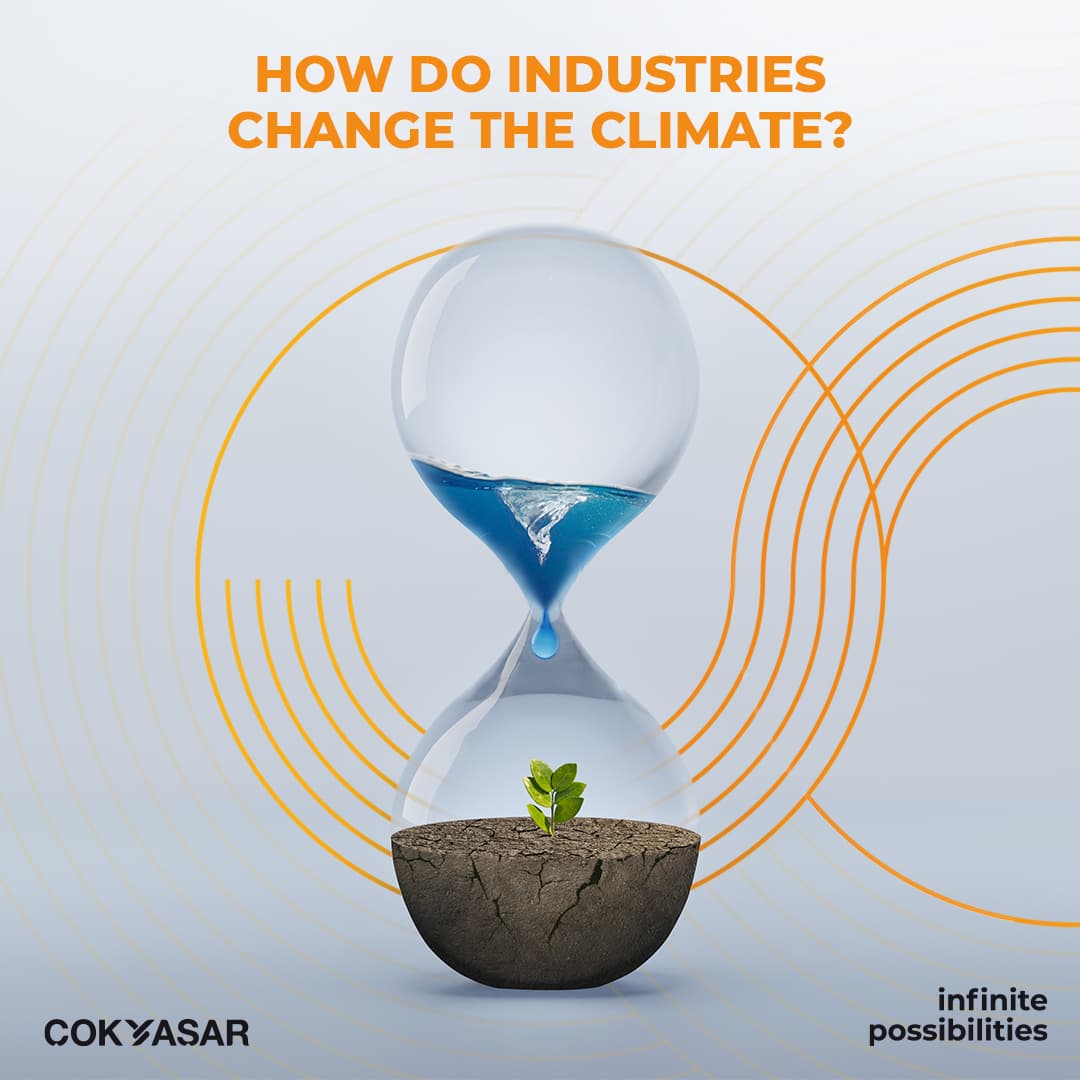‘Climate Crisis and Its Impact on Sectors’
The global climate crisis is one of the biggest problems facing the earth. Climate change causes our planet to warm up, weather events to become more severe, natural disasters to increase, air pollution to increase and biodiversity to decrease.
The climate crisis progresses further and causes irreversible damage as long as it remains unnoticed or ignored. Therefore, we have to face the climate crisis and take effective and urgent measures to solve this problem.
The effects of climate change are felt more and more visibly every day. Disasters such as excessive rainfall, floods, forest fires, drought and desertification are experienced all over the world, including our country. It is necessary to develop climate-friendly policies to prevent the climate crisis, which is deepening day by day, and to keep the global temperature under control.
What is the Climate Crisis?
The climate crisis is a global problem that arises as a result of unbalanced changes in the world's climate conditions. In connection with global warming, global temperature increases, excessive precipitation and unexpected meteorological events occur more frequently; Our world is being destroyed more and more every day and we are heading towards greater destructive effects.
Many steps are being taken to combat and prevent the climate crisis. The most important of these steps is the Paris Climate Agreement. The Paris Agreement has been ratified by 195 countries and forms an important basis for the global fight against the climate crisis.
While scientific studies on climate change continue, international cooperation also takes place through the Intergovernmental Panel on Climate Change (IPCC). The concept of carbon neutrality, which means zeroing out carbon emissions, has started to be talked about more recently due to the increasing awareness of the climate crisis. In this context, the European Green Deal was prepared in order to reduce the carbon footprint and encourage sustainable production. The Green Deal is an agreement that aims to reduce carbon emissions to zero by 2050 and guides countries for the environment.
The climate crisis poses a major threat not only to the environment but also to all sectors; Almost all sectors such as agriculture, construction, industry and finance are negatively affected by the effects of the climate crisis. Therefore, tackling the climate crisis is vital both environmentally and economically.
Climate Change and Environment
Climate crisis is a situation that causes irreversible changes in the world's climate system and threatens human life. With the increase in global temperatures due to the climate crisis, the decrease in water resources brings with it many problems such as drought, desertification, famine, disease, migration and conflict. Additionally, the risk of homelessness for millions of people living in coastal areas increases as a result of melting glaciers and rising sea levels. The climate crisis increases the frequency and severity of natural disasters, causing disasters such as floods, landslides, hurricanes and forest fires.
The UN Climate Change Report, published in 2021, revealed the seriousness and urgency of the climate crisis. According to the report, if global warming exceeds 1.5 °C, the effects of the climate crisis will be much more severe and irreversible. The report also states that climate change affects all sectors and societies, therefore requiring global cooperation and action.
Scientists emphasize that carbon emissions must be reduced rapidly to avoid the dangers posed by the climate crisis. For this purpose, measures need to be taken such as increasing the use of renewable energy resources, moving away from fossil fuels, ensuring energy efficiency, protecting forests and afforestation.
Climate Change and Energy Sector
Safe energy supply poses a major problem in the 21st century. The way energy is produced and used is not sustainable; Between 1990 and 2008, energy use increased by 40% and 80% of the world's energy comes from fossil sources. Fossil fuels cause greenhouse gases that cause climate change to accumulate in the atmosphere.
To cope with the climate crisis, it is necessary to turn to renewable and sustainable energy sources. It is very important for businesses to meet their energy needs from energy sources and to produce their own renewable energy.
Climate Change and the Construction Industry
The construction industry causes more than 30 percent of carbon emissions. 7 percent of global carbon emissions belong to the cement sector. Green transformation in the sector is critical in reducing carbon emissions.
Within the scope of the Green Deal, the use of environmentally friendly technologies, innovation in the industry, decarbonization of the energy sector, use of renewable energy resources are very important for the transformation of the construction sector. The increase in the number of green buildings is one of the important steps to be taken in the fight against the climate crisis.
